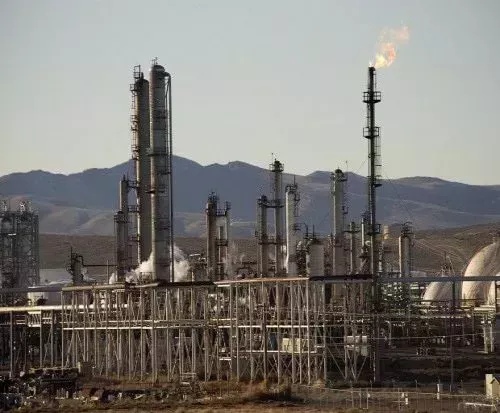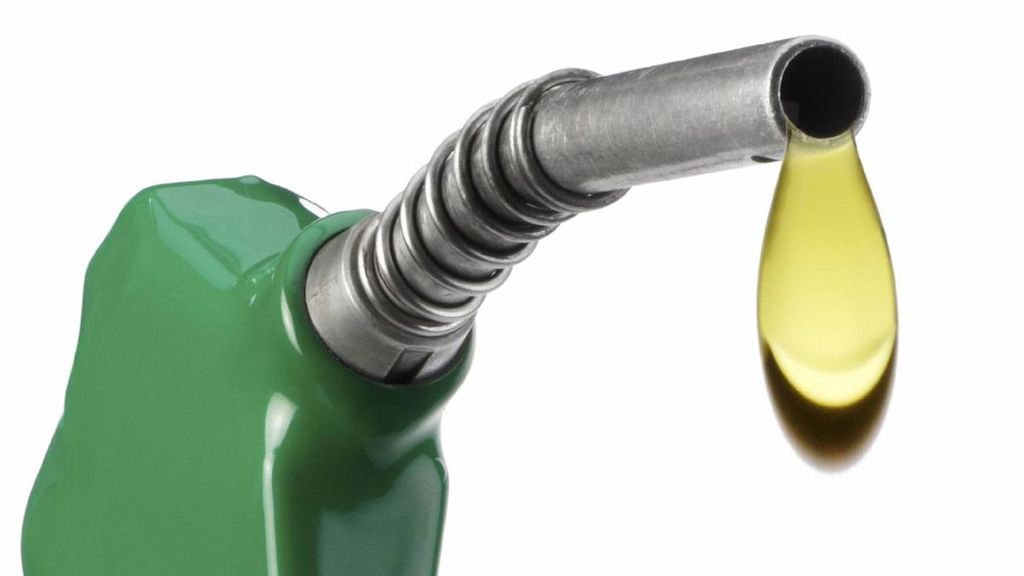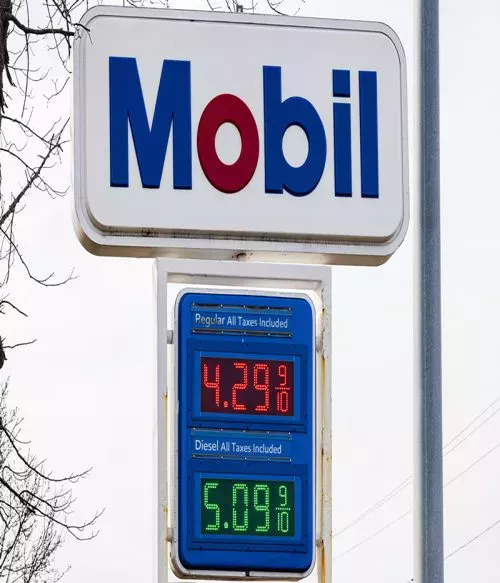Why Is Diesel So Expensive?
Why is Diesel Fuel So Expensive?
While filling your diesel-powered vehicle, one must wonder why diesel is so expensive. If you were a driver in the 90s or before, you would remember that diesel at most all fueling stops was cheaper than most grades of gasoline.
What has caused diesel fuel to be so expensive since the 1990s? Is it primarily due to the federal excise tax combined with state taxes, or are other more discreet forces at play?
Several factors dictate the cost per gallon of diesel fuel at a given location on a given day and what you can do the help control the ever-rising cost of the fuel that powers America.
How Did We Get Here?
If there were ever a perfect storm to cause diesel fuel to be so expensive... it would be the combination of all the pieces that had to fall into place for diesel to become the more costly fuel to power the U.S. and other countries.
After all, diesel fuel is a "dirtier" fuel than its gasoline counterpart, right? So if that's the case, it stands to reason that diesel fuel is cheaper to produce, refine, filter, and deliver to end users. However, that's not the only cause of diesel fuel expenses. Much of this problem relates to supply and demand.
Isn't Diesel Fuel Cheaper To Refine?
In terms of refining diesel fuel, we need first to understand the process of refining this fuel.
While diesel fuel may require less "refining," it has little to do with the overall price paid at the pump. Diesel fuel is refined from crude oil. U.S. refineries produce, on average, between 11 to 12 gallons of diesel fuel from a 42 U.S. gallon barrel of crude oil. Other fuels, including some waste oils, make up the remaining 30 gallons in a given barrel of crude.
During the refinement process, sulfur removal is required. This requirement was vastly ramped up in 2006. Today's ULSD (ultra-low sulfur diesel) fuel is refined to contain a sulfur content of 15 parts per million or less for all on-highway use. Even most off-highway use diesel fuels sold are now using ULSD.
Ultimately, this extra refining and processing step to remove sulfur is more expensive. On average, ULSD costs between $0.05 and $0.25 more per gallon than the previous generation of LSD. Not to be confused with the popular 1970s-era hallucinogenic.
What Else Is Happening With Diesel That Makes It So Expensive?
Looking at other components that go into a gallon of diesel to make it more expensive would be that refineries in the U.S. are aging. Even though we've had six new refineries come online since the beginning of 2015, several unprofitable refineries have been closed.
Another issue is that demand for fuel distillates has steadily increased, while these inventories since 2008 have been stressed. The problem worsened in October of 2022. In fact, according to Forbes, distillate inventories haven’t been this low in October since the EIA began reporting this data in 1982.
Finally, we were importing nearly 700,000 barrels per day (BPD) of petroleum products before Russia invaded Ukraine. Much of this was finished products and refinery inputs that boosted the already pressured fuel distillates in the U.S.

How Many Different Taxes and Fees Are There?
The taxes and fees that go into a gallon of diesel fuel can vary depending on the location and jurisdiction. However, in general, several different types of taxes and fees are commonly included in the price of diesel fuel:
- Federal Excise Tax: The federal government imposes an excise tax on diesel fuel, currently set at 24.4 cents per gallon.
- State Excise Tax: Each state also imposes its excise tax on diesel fuel, with the rate varying from state to state. For example, as of 2023, California has the highest state excise tax at 41.0 cents per gallon, while Alaska has the lowest at 8 cents per gallon.
- Sales Tax: In most states, diesel fuel is subject to sales tax, typically a percentage of the sale price. The sales tax rate can vary depending on the state and the local jurisdiction.
- Environmental Fees: Some states and local jurisdictions also impose additional fees on diesel fuel to fund ecological programs or clean-up efforts.
- Other Fees: In addition to the taxes and fees listed above, often, other costs are included in the price of diesel fuel, such as delivery or terminal fees.
Overall, the total amount of taxes and fees included in the price of a gallon of diesel fuel can vary widely depending on the location and jurisdiction.
Does The D.O.T. Help To Make Diesel More Expensive?
The Department of Transportation (DOT) regulates and oversees various aspects of the transportation industry. These include transporting hazardous materials such as diesel fuel. While the DOT does not directly set the price of diesel fuel, its regulations and policies can indirectly affect consumers' prices.
One way that the DOT can affect the price of diesel is through regulations related to the transportation of diesel fuel. For example, the DOT sets standards for the safety of diesel fuel tanks and requires that certain safety features be included in diesel fuel transport vehicles. These regulations can increase the cost of transporting diesel fuel, ultimately impacting consumers' prices at the pump.
In addition, the DOT is responsible for enforcing regulations related to the transportation of diesel fuel, such as rules around the maximum weight and size of diesel tankers hauling fuel. These regulations can impact the efficiency of diesel fuel transportation and the cost of transporting diesel fuel.

Can I Just Run Biodiesel and What's The Difference?
Yes, it is generally possible to run biodiesel instead of regular diesel fuel, although there are a few things to remember.
Biodiesel is a renewable fuel made from vegetable oils or animal fats. It can be used in diesel engines either as a pure biodiesel fuel (known as B100) or blended with regular diesel fuel at different ratios (such as B20, which is 20% biodiesel and 80% regular diesel).
Not all diesel engines are designed to run on biodiesel, so it's best to check with the manufacturer or consult your owner's manual before using biodiesel. In addition, different types of biodiesel may have other properties that can impact engine performance and emissions, so it is important to use biodiesel that is appropriate for your engine and meets any necessary fuel quality standards.
What Are My Options To Reduce Escalating Diesel Costs?
Several options exist to reduce escalating diesel costs depending on your situation and needs. Here are a few potential strategies:
- Improve Fuel Efficiency: One of the most effective ways to reduce diesel costs is to improve the fuel efficiency of your vehicles or equipment. This can include implementing driver training and behavior programs to reduce idling, optimizing routes and delivery schedules, and investing in fuel-efficient vehicles. New technologies include aerodynamic features, low rolling resistance tires, advanced fuel additives, and engine control systems.
- Use Alternative Fuels: Depending on your needs and equipment, you may be able to switch to alternative fuels such as biodiesel, as mentioned herein, compressed natural gas (CNG), or propane. These fuels may offer cost savings and environmental benefits compared to diesel fuel, although it is important to evaluate the availability and infrastructure requirements for these fuels before making a switch.
- Negotiate Fuel Contracts: If you use a significant amount of diesel fuel, you may be able to negotiate a fuel contract with a supplier or fuel card provider. This can help you lock in a lower price and provide more predictability for your fuel costs.
- Monitor Fuel Prices: Keeping an eye on diesel fuel prices in your area can help you make informed decisions about when and where to purchase fuel. You can use online tools or mobile apps to track fuel prices in real-time and compare prices between fueling stations.
- Consider Fuel Management Software: Fuel management software can help you track fuel consumption and expenses, identify areas for improvement, and monitor fuel purchases in real time. This can help you make more informed decisions about fuel usage and reduce costs over time.
Reducing diesel costs requires a combination of strategies tailored to your specific needs and situation. By implementing these strategies, you can lower your fuel expenses and improve your bottom line.
About the Author
Tech Guy
Automotive enthusiast, passionate about Jeeps, hot-rods, turbos, performance, efficiency, diesels, fuels, high performance oils, additives and anything with an engine.


